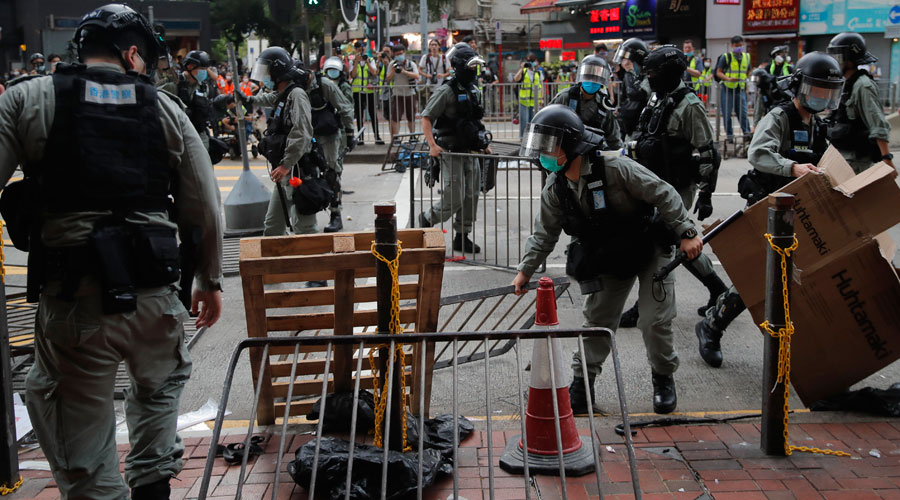A Hong Kong court sentenced a protester to nine years in prison on Friday for terrorism and inciting secession, highlighting the power of a sweeping new national security law to deter those who might speak out against the authorities.
The protester, Tong Ying-kit, had faced up to life in prison after being convicted earlier this week. The case against Tong, who crashed a motorcycle into police officers while flying a protest flag, was the first brought under the security law, which was imposed on Hong Kong by China’s central government last year.
His case has heightened concerns among activists and legal experts that the security law is transforming Hong Kong’s judicial system, which is separate from mainland China’s. They fear that cherished civil and political rights are being trampled under a push to eliminate the sort of unrest and widespread opposition that was seen in the city during months of mass protests in 2019.
The power to interpret the security law rests with Beijing, and some observers say the outcome of Tong’s trial shows how much less space Hong Kong’s courts will have to weigh individual rights when considering security-related charges.
“Thus far, the government has run the table on NSL cases, both on key procedural matters and now on guilty verdicts,” said Thomas Kellogg, executive director of the Georgetown Center for Asian Law, using an abbreviation for the national security law. “This is not a good sign that the courts will be able to mitigate the worst elements of the NSL.” Tong, 24, was arrested on July 1 of last year after colliding with police officers while driving his motorcycle, which had a flag mounted on it that bore a popular protest slogan. Three officers were injured.
He was held for a year without bail. Instead of facing a jury, as is customary for serious crimes in Hong Kong, he was tried by a panel of three judges, all of them from a group of jurists selected by Hong Kong’s chief executive, Carrie Lam, to hear security law cases.
Tong’s lawyers acknowledged that he had driven dangerously but said his actions did not amount to terrorism. They noted that he had been carrying first aid equipment, and that he had scheduled a lunch meeting with friends near the site of his collision with police.
During the 2019 protests, the slogan on Tong’s banner — “Liberate Hong Kong, Revolution of Our Times” — was widely chanted, written on signs and spray-painted on walls. Defence witnesses argued that the phrase did not have a single, specific meaning, but instead expressed a broad desire for fundamental change.
But the court ruled that a call to separate Hong Kong from China was one key meaning of the phrase, and that the context of Tong’s motorcycle ride — in which he repeatedly defied the police on the day after the security law came into effect — showed that he intended to convey that secessionist message. Legal scholars said that finding would be significant not just for other cases involving the “Liberate Hong Kong” slogan, but for an array of language that will now be parsed for illegal meanings.
“This is a green light for the prosecution to do more ambitious prosecutions in the future,” said Surya Deva, an associate professor of law at City University of Hong Kong. “People will be more careful about what they say and what they write about, because anything could be argued by the government as being capable of having that meaning of inciting secession.”
More than 130 people have been arrested under the security law over the past year.
New York Times News Service











